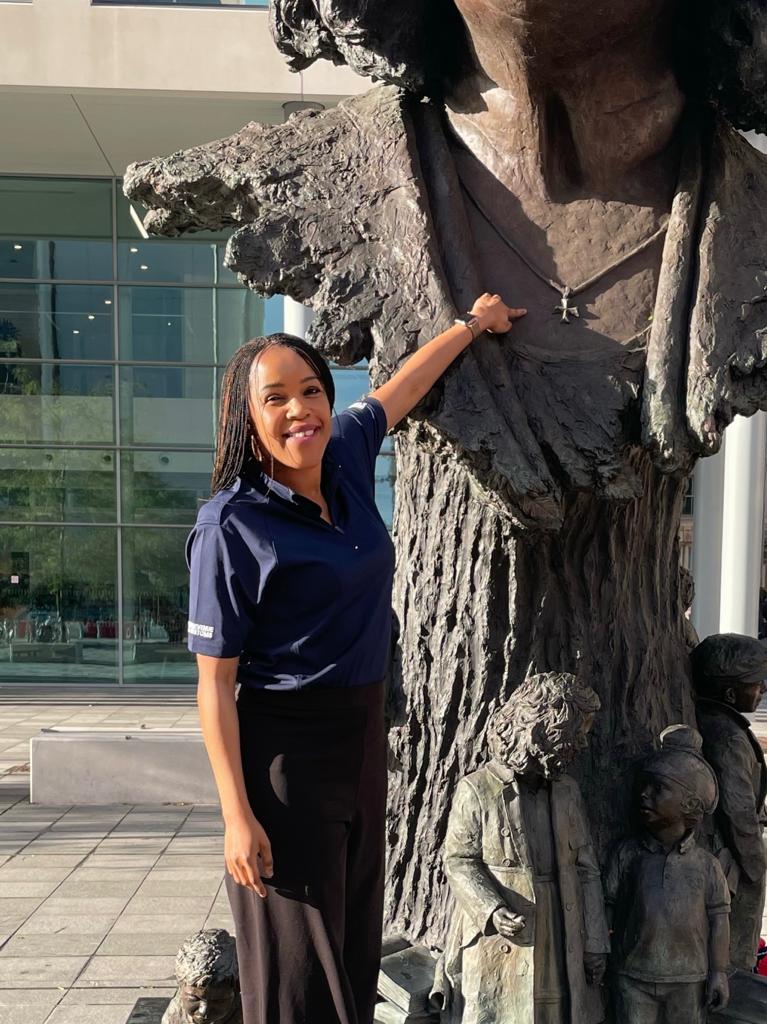As I set out in my introductory post, I will be focusing on different elements of Cardiff’s Betty Campbell statue throughout Black History Month. I will be using the statue as a jumping off point for my own reflections.
I will begin with a subject that is very personal to me. In the statue’s depiction, Betty wears a cross on a chain around her neck. This clearly symbolises her personal faith. Like Betty, my Christian faith is important to me. However, this series of posts is meant to reflect on what this statue says to me about history. In doing so, I can’t shy away from the important role that Christianity played in colonialism and the building of the British Empire.
One of the stories that is frequently told to children in their early history lessons is that of David Livingstone. Livingstone is variously remembered as a Christian missionary, the ‘discoverer’ of Victoria Falls and for getting lost, to be found by the journalist and imperialist Henry Morton Stanley. What is less often remembered is the role of the Shona people in Livingstone’s story. The Shona took pity on the lost missionary, fed him and preserved his life. They also showed him the way to the waterfall that he ‘discovered’ and renamed, known to them as ‘the smoke that thunders.’ If they are remembered at all it is as savages, waiting in ignorance or child-like innocence to be civilized. This is the same Shona people whose complex civilization built the gigantic edifices of Great Zimbabwe and had trade links as far away as China, long before Europeans came to trouble them.
It is not coincidental that the narrative that has reached us focuses on Livingstone and Stanley, not the Shona. This history was written by Europeans for domestic consumption, as were so many other accounts of Empire. These stories were designed to promote the Imperial agenda and utilised racist stereotypes about Black people that were themselves developed to justify the abuses of slavery. In this way the continent that gave rise to the wonders of Egypt, Nubia and Aksum; to the golden reign of Mansa Musa and the university and libraries of Timbuktu; the continent where the sun shines so much more often than in Europe, became the ‘Dark Continent’.
The early missionaries were, no doubt, motivated by genuine religious fervour. They sincerely believed in their mission to save souls. However, their views of the people of Africa and elsewhere were too often shaped by racist assumptions. Knowingly or otherwise, the missionaries were the forerunners of colonial expansion. Traditional belief systems were often central to social organisation. When these were disrupted, the void was filled by Western institutions. Of course, in many cases that process was accelerated by military force. It is hard to separate the religious mission from the military agenda, or from economic exploitation. They went hand in hand.
Religion across many parts of the world is one of the legacies of colonialism. I was brought up as a Christian because my homeland was colonised. Ironically, religion has fared rather better in the former colonies than in the colonial homelands and continues to play a major role in many of those countries. Sometimes this has led to policies and cultures that are less tolerant of difference than were the indigenous cultures of those countries.
None of this shakes my faith, and I am glad to be a Christian. However, it is important to me to know the full history of how I came to be as I am. It is sobering to reflect on the role that colonialism and racism played in that process





